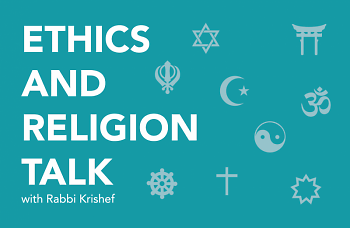Rev. Ray Lanning, a retired minister of the Reformed Presbyterian Church of North America, responds:
“This panelist has a bias for burial of the dead, because that practice is at least as old as Abraham, ‘the father of all them that believe’ (Romans 4:11; see Genesis 23); and it best conforms to the example of our Lord Jesus Christ, whose crucified, dead body was buried or entombed (Mathew 27:59, 60), awaiting His resurrection on the third day. Presbyterians believe that the bodies of dead believers remain ‘united to Christ, and rest in their graves as in their beds, till at the last day they be again united to their souls’ (Larger Catechism, Q. 86).
“Many Christians accept the practice of cremation, however, and it must be considered as a thing indifferent. What one does with the cremains is likewise a thing indifferent. But what is the significance of scattering them over a wide area? Is this body lost forever to the dust of the earth? Or should not these ashes be deposited in one place, as a sign of faith in the resurrection to come? As with many other things, the question of why you do them is as important as what you do, if not more so.”
Fred Stella, the Pracharak (Outreach Minister) for the West Michigan Hindu Temple, responds:
“Cremation is the method of choice for most Hindus. As to what happens to the ashes afterwards, that is a matter of choice. There is no firm directive one way or another. And there is no problem with dividing the cremains to be scattered in different areas. My wife knows that she can scatter mine anywhere but the hard-core red states. I’m looking at you, Alabama and Mississippi.”
The Reverend Colleen Squires, minister at All Souls Community Church of West Michigan, a Unitarian Universalist Congregation, responds:
“Unitarian Universalists strongly favor cremation as our most common burial practice. There are certain state laws or guidelines that should be followed when determining where ashes could be scattered. We have no church doctrine that would dictate if the remains were scattered in one location or in multiple places.”
Father Kevin Niehoff, O.P., a Dominican priest who serves as Judicial Vicar, Diocese of Grand Rapids, responds:
“The Roman Catholic Church does not permit the cremains of the faithful to be scattered. God creates human beings in God’s likeness, and as such, ‘the bodies of those who have died must be treated with respect and charity’ (Catechism of the Catholic Church, p. 554).
“Catholics teach there are seven corporal works of mercy. Corporal refers to the body. The last work of mercy is to bury the dead. Catholics place their hope in the resurrection. Then, the soul and the body will join into a glorified body that will remain with God for eternity.”
Linda Knieriemen, Senior Pastor at First Presbyterian Church in Holland, responds:
“My religious tradition does not have a definitive perspective on this. I have encouraged families to scatter ashes in a place, or places which the deceased family member held dear and where family members will connect with memories, either geographically or through memory. My sister and I scattered our parents ashes a lake— because they both contributed to and lived a Senior Care Facility on its shores. I don’t go to that lake in Minnesota often, but I hold its beauty in my heart and remember the many times I enjoyed walking along its shores with them.
“A belief in the resurrection of the body on the Last Day is sometimes named as the reason to not divide ashes. What it the arms rise out of a lake and the legs from an urn on a fireplace mantel? I believe that if God can raise the dead, and that we indeed rise in something like a body, God can also put the pieces together no matter how many locations the cremains may be.”
My response:
My tradition does not approve of cremation. We believe that the body should go into the ground for burial. The traditional antipathy for cremation is not an issue of resurrection. God does not need an intact body to resurrect. Traditional Jewish burial is green, in the most natural sense of the word. Cremation may have the advantage over burial of not using the resource of land, but other than that, it is polar opposite of green. It fossil fuel resources to turn the human body calcified minerals, driving most of the carbon into the atmosphere. Burial, in its most traditional form, returns the carbon into the ground where it nourishes plant and animal life.
However, if some if cremated, that does not remove the obligation for burial. I would encourage the remains to be treated with care and respect and placed in the ground, rather than scattered in the wind.
This column answers questions of Ethics and Religion by submitting them to a multi-faith panel of spiritual leaders in the Grand Rapids area. We’d love to hear about the ordinary ethical questions that come up in the course of your day as well as any questions of religion that you’ve wondered about. Tell us how you resolved an ethical dilemma and see how members of the Ethics and Religion Talk panel would have handled the same situation. Please send your questions to [email protected].
The Rapidian, a program of the 501(c)3 nonprofit Community Media Center, relies on the community’s support to help cover the cost of training reporters and publishing content.
We need your help.
If each of our readers and content creators who values this community platform help support its creation and maintenance, The Rapidian can continue to educate and facilitate a conversation around issues for years to come.
Please support The Rapidian and make a contribution today.
